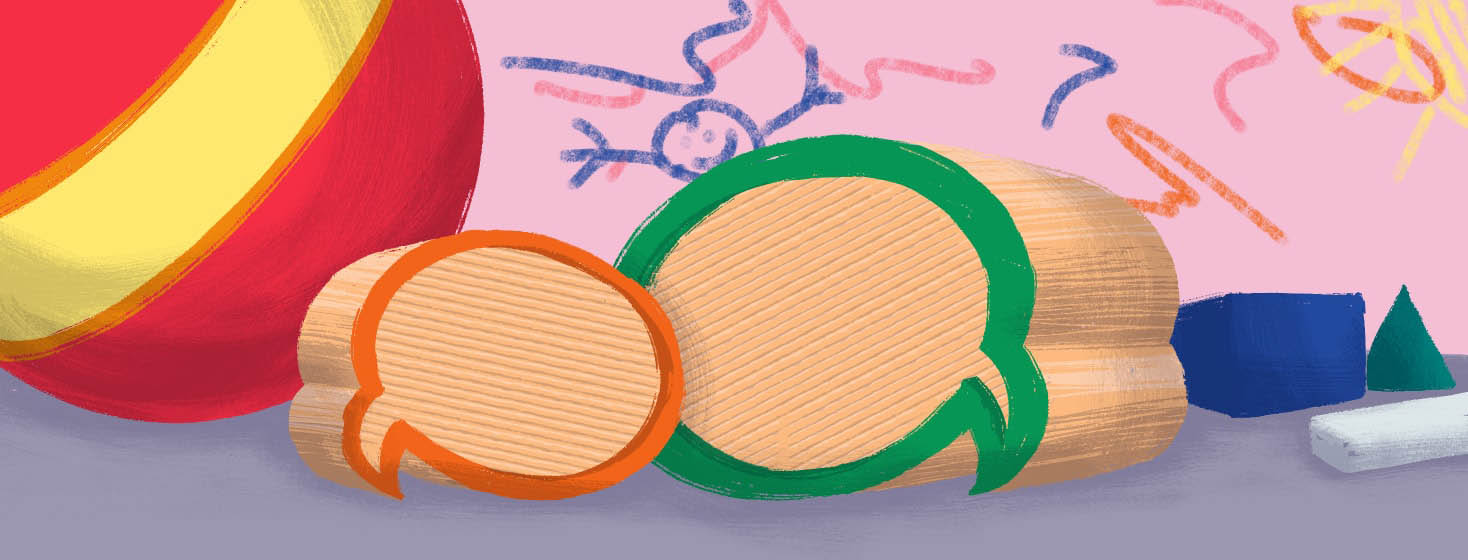My Child's ADHD Unlocked My Past
"Watching my daughter struggle with many of the same things that I did was so eye-opening," - Clair Gardner
This powerful realization illustrates a growing trend: Adults recognizing their own potential attention-deficit/hyperactivity disorder (ADHD) traits only after their children receive a diagnosis. We now know that about 25 percent of the time a child is known to have ADHD, the same is true for one of their parents.1
As awareness of ADHD has increased, parents may view their own childhood experiences differently. This is something that Health Leaders across our communities have written about, as it deeply impacts their health journey.
Why wasn’t I diagnosed with ADHD earlier?
For many of these adults, a diagnosis in their youth was less likely than it is today. Experts estimate that only 10 percent of adults who meet the diagnostic criteria for ADHD are actually diagnosed. The interpretation of ADHD previously focused on overt hyperactivity in boys at school, leading to missed diagnoses, especially in girls and children whose symptoms were less outwardly disruptive.1,2
Psychologist Dr. Andrea B Vassilev, Psy.D., who experiences ADHD herself, connects the clinical dots for us: “Sometimes, people are diagnosed retroactively. During your visit, a doctor may ask you about your symptoms and behaviors as a child and find that ADHD was likely present. For many adults who continue to struggle with executive functioning, this can feel like a huge relief, as it gives reason to many life experiences and challenges they may have faced.”
The realization can be both validating and deeply felt. Clair goes on to share, "the psychiatrist evaluating my daughter had noticed my anxiety and asked if I had ever been assessed. I laughed it off and said, 'Don't be silly I have always been like that.' She smiled and said, 'I know and I am sure it's been very hard for you.' I cried, I was not bad, broken, or naughty, I just needed help."
Looking back: adaptive coping skills
The experience of developing ways of relating, coping, learning, and working can provide valuable insights for parents or caregivers supporting a child with ADHD today.
Awareness is key
Assumptions about ADHD remain prevalent and can impact how parents, teachers, and family members react to a child’s symptoms. Timely and early support can change everything. Simone Yemm shares how this perspective impacted her childhood:
"Back in the 1970s, when I was a child, getting diagnosed was less common. My parents just accepted they had hyperactive, sleepless kids and managed the best they could. These days, I imagine we would have been diagnosed with ADHD."
Understand your child’s task management style
Breaking tasks down into smaller steps is a crucial strategy, especially when tackling overwhelming projects at home or school. Shay Smith shares how she learned this, including a helpful animal metaphor children may connect to:
"Because of my neurospiciness, I often feel overwhelmed trying to get started on tasks, let alone any big life changes. One of the things I've learned to do is take a task that seems too big and break it into smaller, more manageable pieces. As my husband says, 'How do you eat an elephant? One bite at a time.' You can't expect to be able to take on that huge task all in one go. So, instead of telling myself to just clean the kitchen, I break down the tasks needed to complete the kitchen. Or I'll set a timer for 30 minutes and tell myself if I just do 30 minutes, then I'll be good to go. Usually, once I'm up and moving, I'm able to keep going until most of the job is complete. But you know what? I still consider that an accomplishment if I get those 30 minutes that day."
Promote self-compassion
The impact of misunderstanding and going undiagnosed may impact self-image and self-esteem. Teaching children to be patient and compassionate with themselves helps to build resilience through tough challenges. Clair shares a powerful example of this:
"I remember watching a little girl tidy her room when visiting and it was not 10 minutes before it was pulled together. I tried the same thing and was even told, 'It is not that hard, just do it. Start at one end and do it.' A few hours later my room was still a mess. My self-worth was in the ground and my heart was broken, why were these things so hard for me?"
These reflections from adults who navigated childhood without an ADHD diagnosis offer valuable, firsthand perspectives for parents raising children with ADHD today. Their resilience and the coping skills they developed, often through trial and error, provide practical strategies and a sense of understanding for the unique challenges and triumphs of living with ADHD.
Read more:
- Clair’s Story: My History With ADHD and How It Has Affected My Insomnia
- Dr. Vassilev’s Story: When ADHD and Bipolar Meet
- Simone’s Story: ADHD and Restless Leg Syndrome: The Dopamine Connection
- Shay’s Story: Setting Goals to Making Changes: How to “Start”
